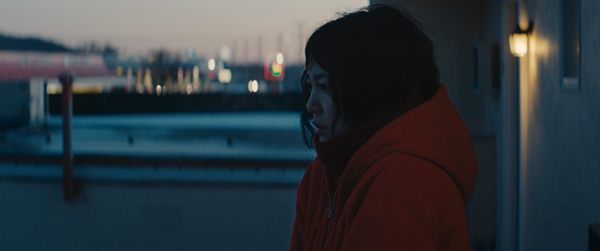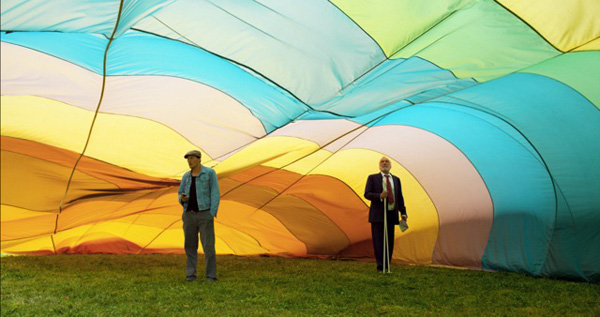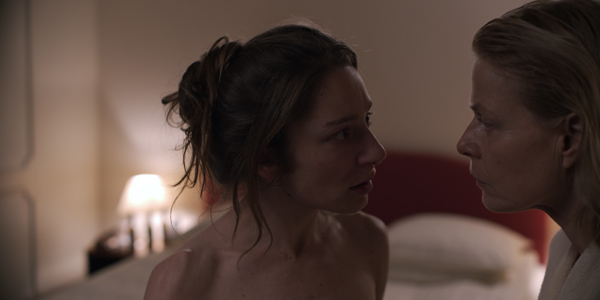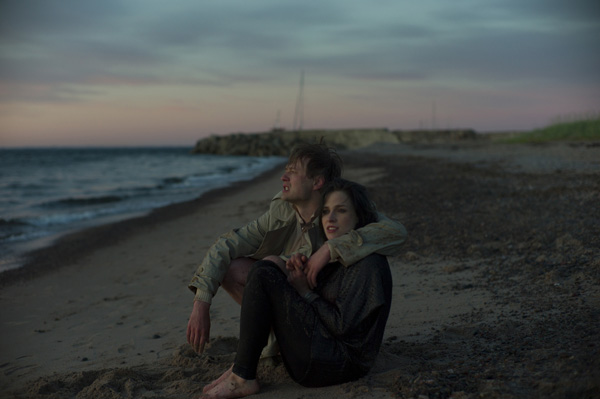In the week since the presentation of the Golden and Silver Bears, overall evaluations of the 64th Berlin International Film Festival have appeared from, among others, Kiva Reardon here in Keyframe, Scott Foundas and Peter Debruge (Variety), Ryan Gilbey (New Statesman), Andrew Horn (realeyz), Tim Robey (Telegraph), Jonathan Romney (Guardian) and Damon Wise (Financial Times). The Notebook‘s indexed its coverage, and final grades have been posted at Critic.de, while Criticwire‘s announced the results of its poll and James Kang has added up the scores at Critics Round Up.
Nearly every previous Berlinale 2014 Diary entry has now been updated with links to fresh reviews. The list below, then, will serve as both my own slightly reconsidered rankings and an index to reviews of what, it must be emphasized, is this year’s festival as I experienced it. Over 400 films were screened between February 6 and 16, so obviously, you’re looking at a very thin slice. Links will take you to the entry on the film, and films without links are briefly discussed below.
- Richard Linklater‘s Boyhood.
- Tsai Ming-liang’s Journey to the West.
- Dominik Graf’s Beloved Sisters.
- Alain Resnais‘s Life of Riley.
- Wes Anderson’s The Grand Budapest Hotel.
- Guillaume Nicloux’s The Kidnapping of Michel Houellebecq.
- Corneliu Porumboiu’s The Second Game.
- Karim Aïnouz’s Praia do Futuro.
- Diao Yinan’s Black Coal, Thin Ice.
- Stephan Geene’s umsonst.
- David and Nathan Zellner’s Kumiko, the Treasure Hunter.
- Denis Côté‘s Joy of Man’s Desiring.
- Midi Z’s Ice Poison.
- Dietrich Brüggemann’s Stations of the Cross.
- Yoji Yamada’s The Little House.
- John Michael McDonagh’s Calvary.
- Benjamin Heisenberg’s Superegos.
- Benjamin Naishtat’s History of Fear.
- Josephine Decker’s Butter on the Latch.
- Sophie Fillières’s If You Don’t, I Will.
- Göran Hugo Olsson’s Concerning Violence.
- Rebecca Chaiklin and Fisher Stevens’s Another World.
- Lou Ye’s Blind Massage.
- Dante Lam‘s That Demon Within.
- Edward Berger’s Jack.
- Hans Petter Moland’s In Order of Disappearance.
- A.J. Edwards’s The Better Angels.
- Maria Speth’s Daughters.
- Bong Joon-ho’s Snowpiercer.
- Claudia Llosa’s Aloft.
- Veiko Ounpuu’s Free Range.
- Feo Aladag’s Inbetween Worlds.
Note that I’m keeping Baal (1969) out of the rankings. I certainly didn’t plan to make it the only not-new film I managed to see this year, but all the more reason, then, to treat it as a special case, more as a fresh page in my prized mental scrapbook of Fassbinderiana than as a film to be measured against others.
I opened an entry on David and Nathan Zellner‘s Kumiko, the Treasure Hunter when it premiered last month at Sundance, and I’d only add to that round of solid reviews that, for all the well-deserved praise Rinko Kikuchi’s garnered for her performance as the nearly asocial “office lady” who heads out from Tokyo for Fargo (drawing, by the way, after Corneliu Porumboiu’s The Second Game, a second Berlinale 2014 connection between VHS “snow” and actual snow), David Zellner is genuinely touching as a police officer who tries to lend a helping hand but doesn’t, really, have the vaguest idea how to. For those of you drawing up your schedules for SXSW, consider this a recommendation. The latest reviews come from David Jenkins (Little White Lies) and John Semley (House Next Door).
Both Elizabeth Kerr (Hollywood Reporter) and Richard Kuipers (Variety) consider Ice Poison (Bing Du) to be Midi Z’s best feature yet. I wouldn’t know, having seen neither Return to Burma (2011) nor Poor Folk (2012), but I can concur that this is an impressively rich—and of course, quite unique—portrait of contemporary Burma/Myanmar. The “ice” of the title is a meth-like drug a struggling young farmer (Wang Shin-Hong) and a single mother returning from China (Wu Ke-Xi) deliver via moped, eventually turning from runners into users, but to state the obvious, this is no Breaking Bad. For some, the pace will be slow; for others, the pace will be real. For everyone, the final scene, perfect as it is, will come as a shock.
Perhaps the biggest surprise at the awards ceremony last week was the Silver Bear for Best Actress that went to Haru Kuroki for her performance in Yoji Yamada’s The Little House. Not that she doesn’t deserve the recognition, but the surprise probably has more than a little to do with the unassuming, almost self-denying nature of her role as a maid for the Hirai family, a respectable upper middle-class household run in the lead up to and during WWII by a toy company executive (Takataro Kataoka). The harmony under the bright red roof is disrupted by the wife and mother’s (Takako Matsu) falling for an artist (Hidetaka Yoshioka) whose unusual ‘do happens to pretty closely resemble Yamada’s own. Myself, I don’t mind at all indulging in this sort of staid middlebrow melodrama, but I can’t think of anyone offhand I’d recommend it to. More from Maggie Lee (Variety) and David Rooney (Hollywood Reporter).
Speaking of surprises. Benjamin Heisenberg heightened the tension in his outstanding thriller The Robber (2010) by cleanly refusing to delve into any sort of psychological explication. Superegos (Über-Ich und Du) is a comedy (!) all about psychology (!). A renowned elderly philosopher (André Wilms) preparing a life-capping (and self-justifying) lecture transfers his pathologies (among them, a fear of kitchens) to a small-time crook (Georg Friedrich) who’s tricked his way into the household to hide from a gang led by a ruthless woman everyone calls Mother (Maria Hofstätter). The laughs are pretty good until the odd couple hauls off to a mountain cabin where the prof throws a therapeutic whammy on the crook and night falls and rain pours and the mood turns darkly surreal. Eventually, the crook pulls himself out from the muddy muck—a difficult birth—and the jokes are freed again from their too-literal relation to the unconscious. Oh, and balloons! Big, bright colorful balloons hover over the opening and closing scenes. Not sure I see why, but the comments we hear from the tourist passengers inside are fairly amusing. More from Stephen Dalton (Hollywood Reporter); and Yaron Dahan interviews Heisenberg for the Notebook.
Josephine Decker had two films at the Berlinale this year. Seeing Butter on the Latch has made me sorry I missed Thou Wast Mild and Lovely. The trailer for Butter up there is fairly representative of Decker’s style, and I’m in full agreement with the New Yorker‘s Richard Brody here: “It’s not a movie that defies the rules; its moods and its techniques seem invented from scratch, as if on the assumption that there are no rules and that a movie—despite the fundamental fact of recording—is an act of pure creation.” Relating the story (sort of) of two friends (Sarah Small and Isolde Chae-Lawrence, both excellent) who meet a third (Charlie Hewson) at a Balkan-themed retreat in Mendocino, Decker lost me during a key event but won me back again with her handling of its aftermath. More on Butter from Peter Debruge (Variety) and Mark Lukenbill (Hammer to Nail). Reviews of Thou Wast Mild and Lovely: Richard Brody (New Yorker), Eric Kohn (Indiewire), David Rooney (Hollywood Reporter) and Rodrigo Perez (Playlist, C+). Interviews with Decker: Ashley Clarke (Filmmaker) and Peter Knegt (Indiewire).
In Sophie Fillières’s If You Don’t, I Will (Arrête ou je continue), Pomme (Emmanuelle Devos) and Pierre (Mathieu Amalric) have, over the years, created their own private method of bickering that, as deep and hurtful and bitter as it is for them, makes for savagely entertaining viewing for the first third or so of the film. Then Pomme decides to pout in the woods, and If You Don’t is suddenly pretty much over, with maybe an hour to go. More from Fabien Lemercier (Cineuropa), Guy Lodge (Variety) and Jordan Mintzer (Hollywood Reporter).
Maria Speth’s Madonnen (Madonnas, 2007) is a major entry in the Berlin School canon (if we can speak of such a thing yet), which makes her return to the Forum with Daughters (Töchter) all the more disappointing. Agnes (Corinna Kirchhoff, looking from some angles like Lauren Bacall in a rotten mood) searches Berlin for her daughter and finds a substitute in Ines (Kathleen Morgeneyer), a street urchin in the eyes of most, a free spirit in her own. I like Lars Mikkelsen quite a bit, but his role as a sculpture who’s encouraged Ines’s work in the past and tells us a few things we’ve already figured out on our own is indicative of the lack of the sort of ingenuity we saw in Madonnen. More from Bénédicte Prot (Cineuropa).
Adam Cook (Notebook), Stephen Dalton (Hollywood Reporter), José Sarmiento Hinojosa (desistfilm) and Nick James (Sight & Sound) all have terrific things to say about Estonian director Veiko Õunpuu’s followup to The Temptation of St. Tony (2009), Free Range (Free Range – Ballaad maailma heakskiitmisest), which is well and good, of course, but I absolutely despised it. Free Range opens with promise: a magazine editor (Roman Baskin) tears up his office after reading an admittedly quite funny review of Terrence Malick’s Tree of Life submitted by Fred (Lauri Lagle), but from there, it’s a quick plunge into the sort of adolescent nihilism that runs pretty shallow indeed. Critics who’ve seen galley proofs of the book Fred’s working on are evidently whispering that he’s some sort of genius, but once we hear passages from it, we realize that Fred’s work is as laughably facile as Free Range itself. Stylistically, I’d love to see the homage to New Hollywood-era classics others are seeing, but for me, umpteen minutes of Fred and his girl on a carnival ride while Cat Stevens’s “Peace Train” drones on and on and on just doesn’t count.
Rather than wrap on a sour note, I’ll turn to Rebecca Chaiklin and Fisher Stevens’s Another World, a documentary tracking Occupy Wall Street from its beginnings through NYC mayor Bloomberg’s sweep of Zuccotti Park to the movement’s reincarnation in various currently active offshoots. Formally, it breaks no new ground but it doesn’t really need to. Individual stories—and I’ll have the Hollywood Reporter‘s David Rooney step in here: “The key figures in the doc are Bobby Cooper, whose father’s New Hampshire farm was under threat of foreclosure; Hero Vincent, a hip-hop performer whose family had lost their North Carolina home; Amin Husain, a Palestinian-born lawyer jaded with his corporate job; Lisa Fithian, a veteran global agitator; Patrick Bruner, an unemployed journalist drowning in student loan debt; and Sandy Nurse, the daughter of a U.S. Department of Defense staffer who had been headed for a diplomatic career”—more than adequately see to the job of humanizing an otherwise (and in this case, consciously) faceless movement that docs like these set out to get done. Perhaps more importantly, Another World reminds us that Occupy did succeed in bringing the current brutal and ever-growing inequality of the global economy to public debate. And the final chapter on those offshoots, the grassroots organizations reclaiming abandoned structures, feeding the hungry, addressing specific and immediate emergencies if not so much the big picture any longer, is inspiring. More from Jessica Kiang (Playlist, C+).
For news and tips throughout the day every day, follow @KeyframeDaily on Twitter and/or the RSS feed. Get Keyframe Daily in your inbox by signing in at fandor.com/daily.









